SUMMARY
This is AI generated summarization, which may have errors. For context, always refer to the full article.
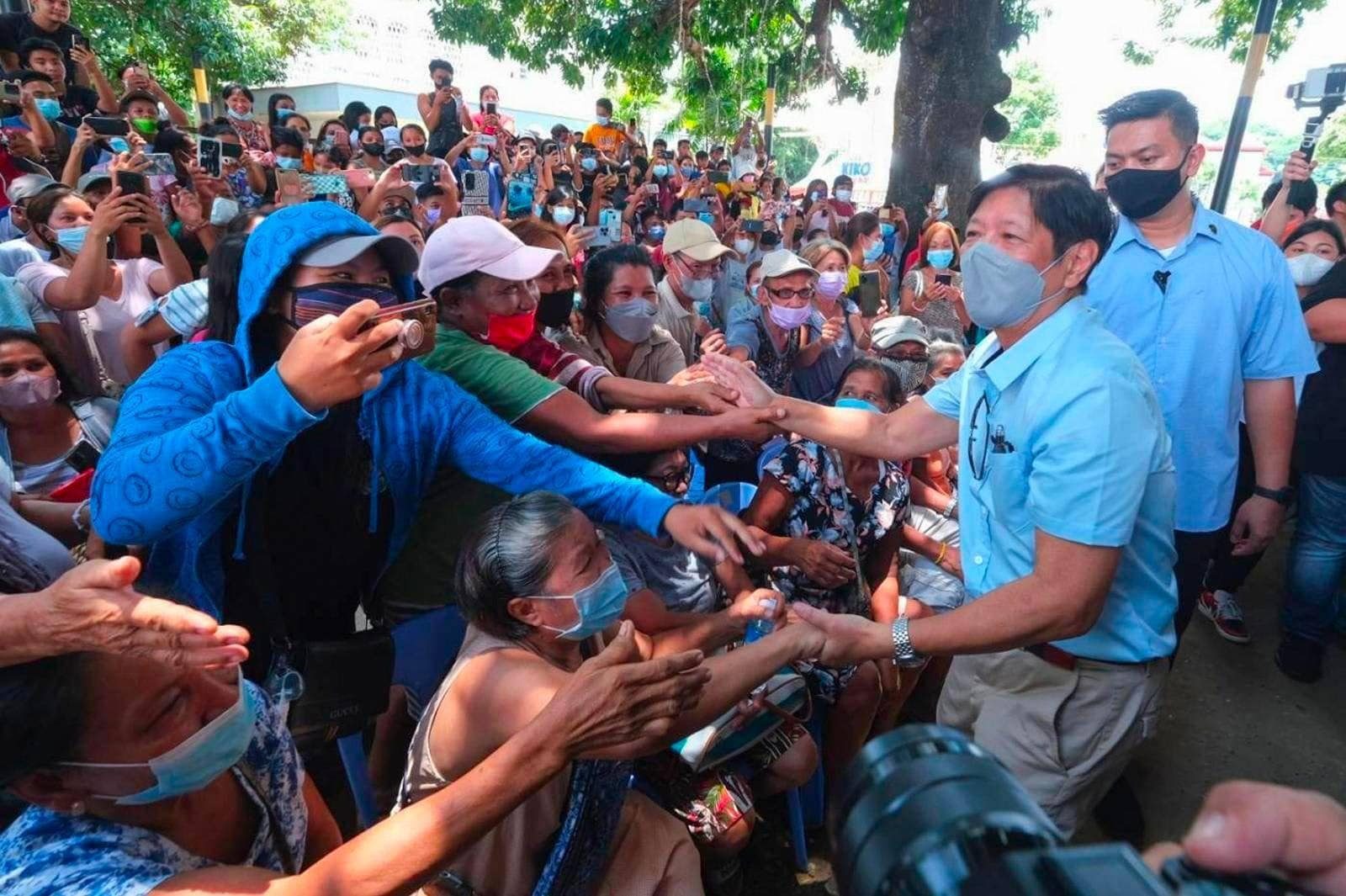
BANGUED, Abra – July 27 was a night of little rest and barely any sleep for most residents of Bangued town in Abra and nearby Vigan in Ilocos Sur.
That morning, their towns shook, houses creaked, soda bottles crashed to the floor, and old buildings – emblems of a glorious past that this part of the Philippines is best known for – got damaged that either left them irreparable or would take lots of funds and lots of time to repair. The tremors kept coming back sporadically in the evening.
It’s the north that President Ferdinand Marcos Jr saw upon visiting Abra province on Thursday, June 28, a day after a magnitude 7 earthquake shook the Luzon island, affecting several provinces, especially those in Ilocos and Cordillera.
It was both a homecoming – and family reunion of sorts – for the President whose term began less than a month ago and who, just days prior, delivered his first State of the Nation Address.

The President was decidedly lowkey in his visit, at least for those who were in Bangued themselves. Marcos, alongside key Cabinet officials – Special Assistant to the President Secretary Anton Lagdamao, Interior and Local Government Secretary Benhur Abalos, Social Welfare Secretary Erwin Tulfo, and Defense Officer-in-Charge Jose Faustino – flew from Manila to Vigan, then by helicopter to Bangued. They arrived at around 10 am and were out of Abra before 1 pm.
While in Bangued, Marcos visited the Abra Provincial Hospital, where some of the injured were confined, and an evacuation center at the town poblacion, where displaced families had spent their first sleepless night.
In between, Marcos presided over a briefing on the post-earthquake situation in Abra and nearby areas led by provincial and regional officials. There, he was joined by his sister, Senator Imee Marcos and his cousin, House Speaker Martin Romualdez.
Return to normal
While the devastation wasn’t at a large scale and the death toll has, so far, been mercifully low, life in many towns and cities in the areas affected by the earthquake was anything but back to normal.
As the day started, residents rose from their slumber – or what little they got of it – inside evacuation centers or right outside their homes, so they could run out to the streets in case of another strong aftershock.
There were at least two strong ones overnight, and at least one more weaker tremor that morning.
Vice Govenor Maria Jocelyn Bernos asked national officials when would residents finally be able to enter their homes. Science and Technology Undersecretary Renato Solidum said that would be determined by engineers.
The local government is tasked with inspecting homes in the aftermath of an earthquake.
After the hour-and-a-half-long meeting, the President zeroed in on two points: bringing life back to normal by making sure structures are safe and usable, and making sure national government coordinates with local government units in planning and implementing those plans.
“Hindi kayo nag-uulit, hindi kayo nagkukulang (You don’t overlap, you don’t fall short of anything), you plan everything together. You listen to the local governments because… they are the ones who have the fundamental responsibility to bring this aid to our people, to those who have been hurt,” he said.
‘Solid North’
While Marcos’ trip was meant for him to personally check on the status of relief efforts in Abra, it turned into a “sortie” of sorts. During the situational briefing, local executives called on the Ilokano President to deliver on the long-neglected needs of their towns.
At the town square in the capitol of Bangued, chants of “BBM” greeted Marcos, as locals gathered both to see the President and to collect relief goods and tarpaulins to serve as temporary shelter while they waited out the aftershocks outside their homes.

“Thank you all very much. Maraming salamat at sa… Para akong nagkakampanya pa rin (Thank you for the… it’s like I’m campaigning all over again),” Marcos joked, adding that it was fun to campaign in Abra because the results – referring to the 2022 polls – were even more fun.
Marcos won big in Abra province – getting at least 95% of votes in the presidential race – a fact La Paz Mayor Joseph Bernos made sure to point out when he asked for fire trucks and ambulances for Abra.
While Marcos didn’t mention the 2022 polls during the briefing with officials, he did so when he was facing Bangued locals at the evacuation center.
“Maraming salamat sa tulong ninyo. Maraming salamat sa suporta ninyo. Ngayon ako naman ang tutulong sa inyo at magsusuporta sa inyo,” he added.
(I thank you all for your help and your support. This time, I’ll be the one to help and support you.)
In the Cordillera Administrative Region (CAR) of which Abra is a part of, as of Thursday, four people died because of the earthquake. Most of the cities in CAR and other regions that lost power due to the temblor have since gotten their supply back. Mobile services are fully restored in most town and city centers.
Over 868 houses were damaged by the earthquake, with 11 considered totally damaged. Hours after the briefing headed by Marcos took place, Abra was officially placed under a state of calamity. – Rappler.com
Add a comment
How does this make you feel?



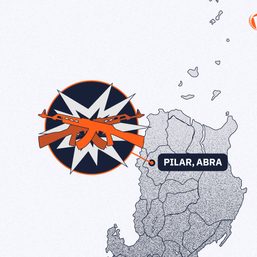
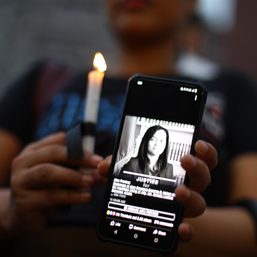














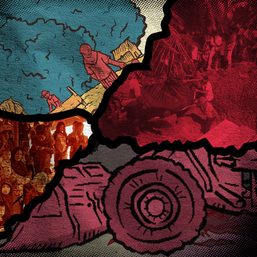




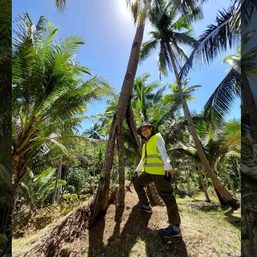
![[In This Economy] Marcos’ POGO ban is popular, but will it work?](https://www.rappler.com/tachyon/2024/07/thought-leaders-marcos-pogo-ban.jpg?resize=257%2C257&crop=255px%2C0px%2C720px%2C720px)
![[Rappler Investigates] POGOs no-go as Typhoon Carina exits](https://www.rappler.com/tachyon/2024/07/newsletter-graphics-carina-pogo.jpg?resize=257%2C257&crop=424px%2C0px%2C1080px%2C1080px)





![[Just Saying] SONA 2024: Some disturbing points](https://www.rappler.com/tachyon/2024/07/TL-marcos-sona-points-july-23-2024.jpg?resize=257%2C257&crop=335px%2C0px%2C720px%2C720px)

There are no comments yet. Add your comment to start the conversation.